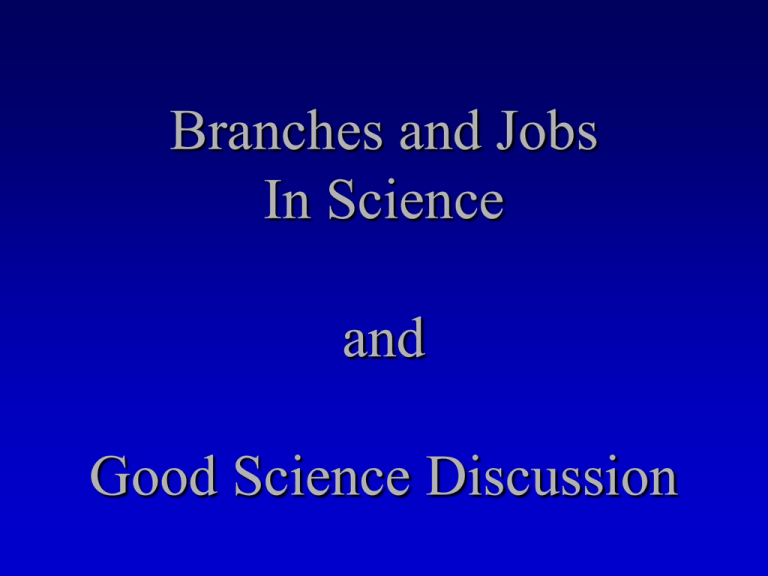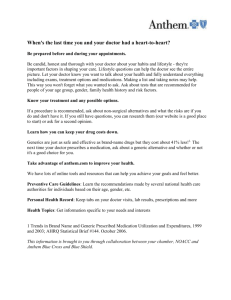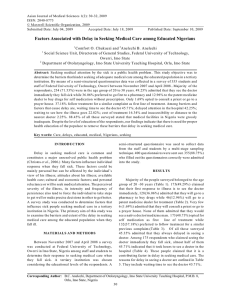ppt
advertisement

Branches and Jobs In Science and Good Science Discussion 3 Main Branches of Science • Life Science – The study of living things – 7th grade – Biology, ecology • Physical Science – The study of matter and energy – 8th grade – Physics, chemistry • Earth Science – The study of the earth and other planets – 9th grade – Astronomy, meteorology, oceanography Degrees in Science – A.A.S. is an Associate of Applied Science • 1 to 2 years after high school • Less money, but more jobs – B.S. is a Bachelor of Science • 4 to 5 years after high school • More money than high school education – M.S. is a Master of Science • 1 to 4 years after a B.S. • More money, but less jobs available – Ph.D is a Doctor of Philosophy • 4 to 8 years after a B.S. • More money, but less jobs available Degrees in Science (con’t) – M.D. is a Medical Doctor • 4 years after a B.S. • The doctor you visit when you are sick – D.D.S. is a Doctor of Dental Surgery • 4 years after a B.S. • The dentist – D.V.M. is a Doctor of Veterinary Medicine • 4 years after a B.S. • The doctor you visit when your pet is sick Jobs/People in Science – Scientists (M.S., Ph.D) • Discover new things • Discover and describe new laws in science – Engineers (B.S., M.S., Ph.D.) • Use existing discoveries to improve our lives • Use science to improve existing products – Technicians (Certificate, A.A.S., B.S., M.S.) • Install, repair, fix, and/or maintain equipment Good Science Class Discussion Asking Questions: •Level 1 Questions •Level 2 Questions •Level 3 Questions Good class discussions involve: •Active listening of every student •Staying on topic •Students who courageously share their ideas •Focusing on Level 2 and 3 Questions •Students responding to other students •Students asking questions of other students •Allowing others to share their points •Challenging the ideas of others in a respectful way Don’t play guess what is on the teacher’s mind. I want to hear what you think. Your ideas and questions are important!!! Level 1 Questions ask to recall facts and information. These questions have specific answers. Words typically used: define, recall, recognize, remember, who, what, where, when, describe, compare, contrast, rephrase, put in your own words, explain the main idea Ex: If we are discussing elements and the periodic table, you may ask: • “What is the symbol for hydrogen?” • “What is the name of the first column of elements?” Level 2 Questions ask about extensions and applications of the topic. Words typically used: apply, classify, use, choose, employ,write and example, solve, how many, which, what is, identify motives/causes, draw conclusions, determine evidence, support, analyze, why Ex: If we are discussing characteristics of the tundra biome, you may ask: • “Why is it so cold?” • “What housing and clothes do human need to live there?” Level 3 Questions ask how to use the information to go beyond the topic. These questions have no specific answer. Words typically used: predict, produce, write, design, develop, synthesize, construct, how can we improve, what would happen if, can you devise, how can we solve. Ex: If we are discussing fossil fuels: • “What are some alternatives to gasoline?” • “How will our society need to change when gasoline is gone in a few years?”






